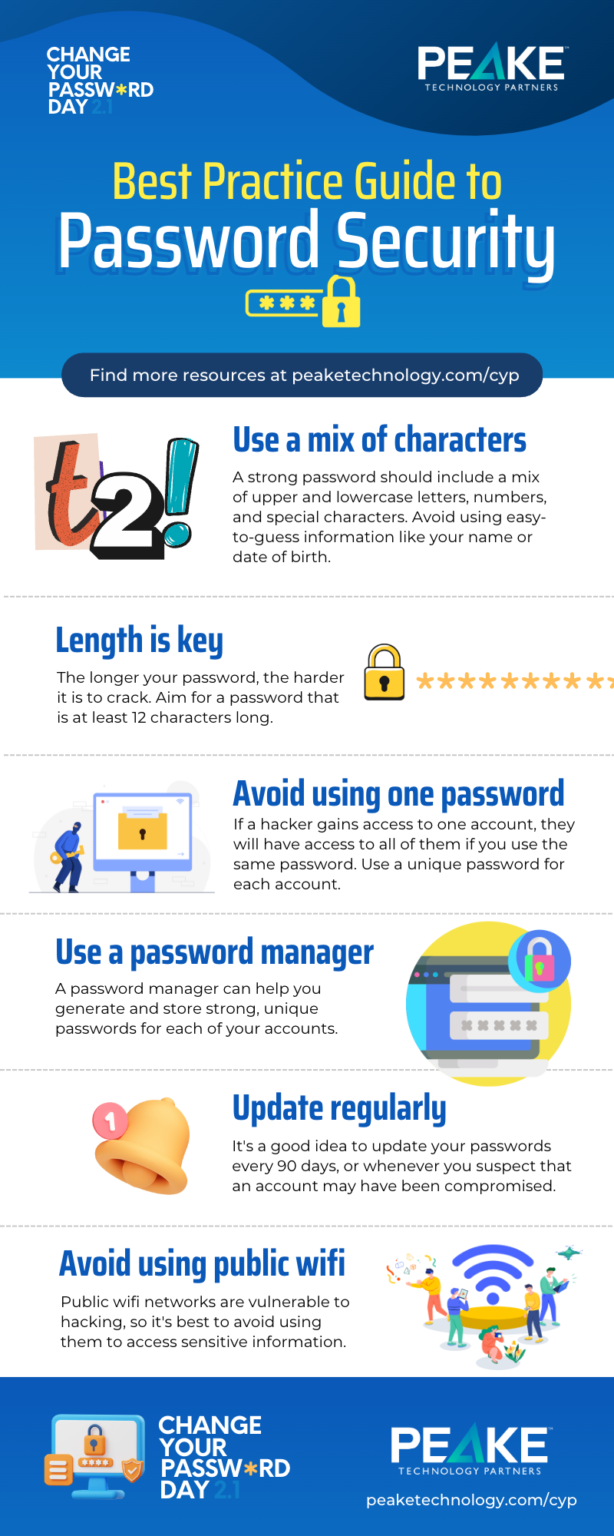
PEAKE is proudly promoting “Change Your Password” Day to encourage security awareness among the medical community. The healthcare industry is a top target for cyberattacks. Every internet-connected device associated with your practice can be a window for a hacker to steal data or drop ransomware.
While there are many measures that should be taken to secure your practice from cyberattacks, there is something that anyone can do: update their password. By taking a few minutes to properly update your passwords, you dramatically reduce the chances of a successful breach attempt. + See PEAKE’s Official Guide to Change Your Password Day

CYP RESOURCES
Best Practices for Updating Your Password
Strong passwords are essential to protecting your personal and professional information, so it’s important to take the time to create and update them regularly. Here are some best practices to follow when updating your passwords:
- Use a mix of characters: A strong password should include a mix of upper and lowercase letters, numbers, and special characters. Avoid using easily guessable information like your name or date of birth.
- Length is key: The longer your password, the harder it is to crack. Aim for a password that is at least 12 characters long.
- Avoid using the same password for multiple accounts: If a hacker gains access to one of your accounts, they will have access to all of them if you use the same password. Use a unique password for each account.
- Use a password manager: A password manager can help you generate and store strong, unique passwords for each of your accounts.
- Update your passwords regularly: It’s a good idea to update your passwords every few months, or whenever you suspect that an account may have been compromised.
- Avoid using public wifi or untrusted networks: Public wifi networks are vulnerable to hacking, so it’s best to avoid using them to access sensitive information.
It’s important to take the time to create and update strong, unique passwords regularly, and to use a password manager to help manage them. By following these best practices, you can help keep your personal and professional information secure.


